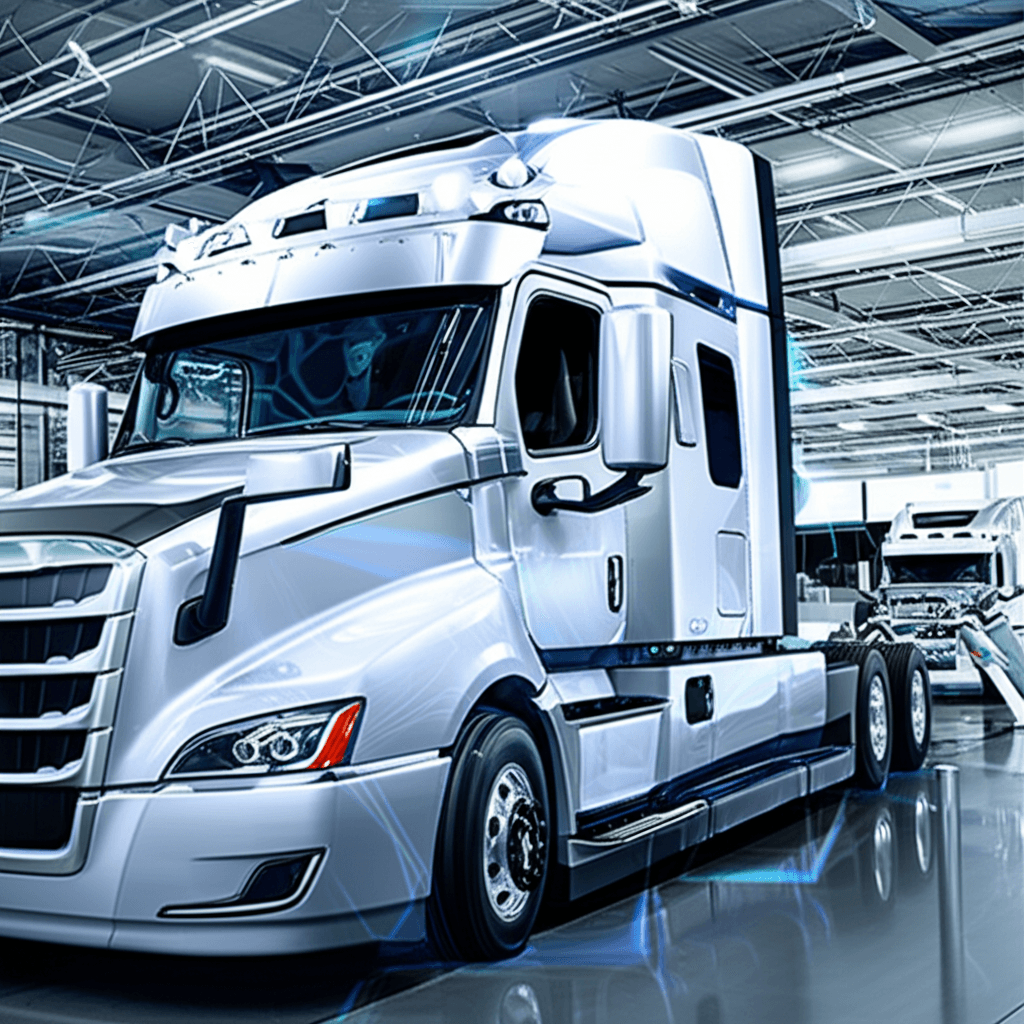Kodiak Robotics Taps Roush for Mass Production of AI Self-Driving Trucks
Kodiak Robotics partners with Roush, marking the shift from autonomous trucking tech development to scaled commercial production.
June 24, 2025

Autonomous trucking company Kodiak Robotics has entered into a strategic partnership with manufacturing and engineering firm Roush Industries to scale the production of its self-driving trucks.[1] This collaboration marks a critical step in Kodiak's transition from limited production runs to the full-scale deployment of its AI-powered autonomous system, the Kodiak Driver.[2][1] Under the agreement, Roush will upfit Class 8 trucks with Kodiak's technology at its facility in Livonia, Michigan, with work scheduled to begin in the second half of 2025.[2] The partnership is designed to establish a robust and repeatable manufacturing process capable of meeting growing customer demand and accelerating the commercialization of driverless freight operations.[3][1] This move signals a maturing phase for the autonomous vehicle industry, where the focus is shifting from pure technology development to the complexities of reliable, at-scale manufacturing and deployment.
The core of the partnership involves Roush establishing a dedicated production line to integrate Kodiak's modular and vehicle-agnostic hardware into new semi-trucks.[1][4] This hardware suite includes Kodiak's proprietary SensorPods, which are pre-calibrated and built for quick repairs, AI compute systems, the Actuation Control Engine safety compute, and crucial redundant actuation elements for steering and braking.[2][5] By leveraging Roush's nearly 50 years of experience in the mobility sector and its specialized expertise in upfitting complex and autonomous vehicles, Kodiak aims to ensure its trucks are built to exacting, OEM-grade standards.[2][4] A key advantage of this collaboration is the focus on creating a flexible manufacturing process.[2] Unlike traditional factory-line integration that is often limited to a single truck configuration, the Roush facility will be able to handle a wide array of vehicle types, cab styles, axle setups, and heavy-duty applications, allowing for customization to meet the diverse needs of Kodiak's customers.[6][3]
The first trucks to roll off the new Roush production line are earmarked for Kodiak's customer, Atlas Energy Solutions.[2] This builds on a significant existing relationship; Kodiak and Atlas began driverless operations in December 2024, and Atlas now owns and operates four trucks equipped with the Kodiak Driver.[2][7] These trucks are already conducting 24/7 driverless service in the Permian Basin, hauling frac sand for the energy sector.[6][7] Atlas has a firm commitment to order an initial total of 100 Kodiak-equipped trucks, making the scaling capabilities provided by the Roush partnership essential.[6][7] The initial driverless deliveries for Atlas took place on a 21-mile private road route in West Texas, showcasing the system's viability in challenging operational environments.[8] Kodiak supports these operations from an outpost in Odessa, Texas, where staff can provide remote assistance if needed.[6] The success of this initial deployment was a key factor leading to the need for a scaled manufacturing solution.
This strategic manufacturing agreement is a cornerstone of Kodiak's broader ambition to commercialize driverless trucking at a significant scale and capture a piece of the estimated $4 trillion global trucking market.[1][9] The company has been methodically building towards this moment, having revealed its sixth-generation, production-ready autonomous truck in early 2024 after five years and 2.5 million miles of testing.[5] This Gen6 truck is designed to be retrofitted onto trucks from major manufacturers and features a comprehensive sensor suite of 12 cameras, four lidar sensors, and six radar sensors, with Nvidia GPUs handling the processing.[5] Further signaling its readiness for commercial expansion, Kodiak is also pursuing a public listing through a proposed business combination with Ares Acquisition Corporation II, a special purpose acquisition company (SPAC), which is expected to close in the second half of 2025.[1][4] This move to access public markets is intended to fund its go-to-market strategy and meet increasing customer demand.[1]
In conclusion, the partnership between Kodiak and Roush represents a pivotal moment in the journey toward autonomous freight. It addresses the critical manufacturing hurdle that stands between technological viability and widespread commercial adoption. By securing a partner with deep experience in automotive-grade production and flexible integration, Kodiak is positioning itself to move beyond pilot programs and into serial production.[1] The focus on a flexible upfitting process acknowledges the diverse requirements of the trucking industry and provides a practical path to scaling operations with key customers like Atlas Energy Solutions.[6] As the first trucks from this collaboration are slated for delivery, the logistics and AI industries will be watching closely to see how this model of outsourced, scalable manufacturing shapes the future landscape of autonomous transportation.